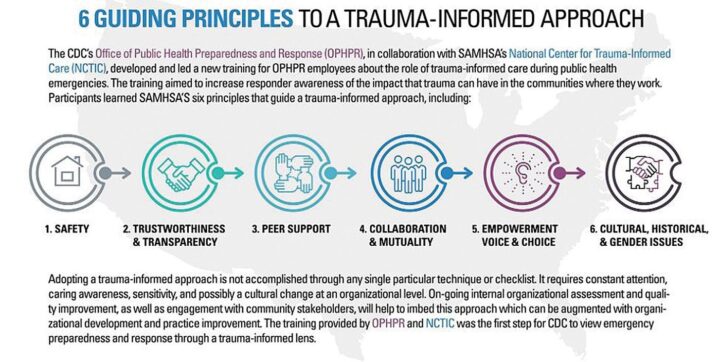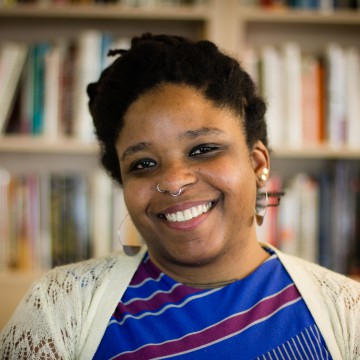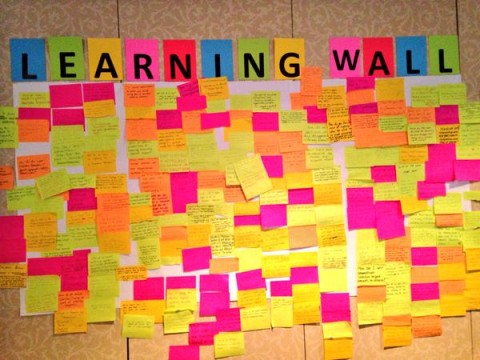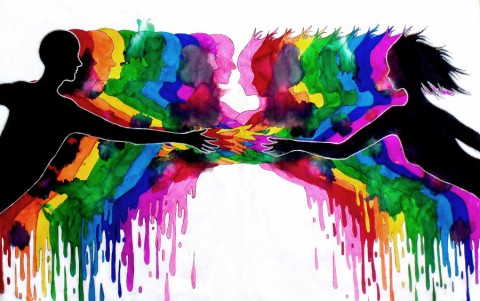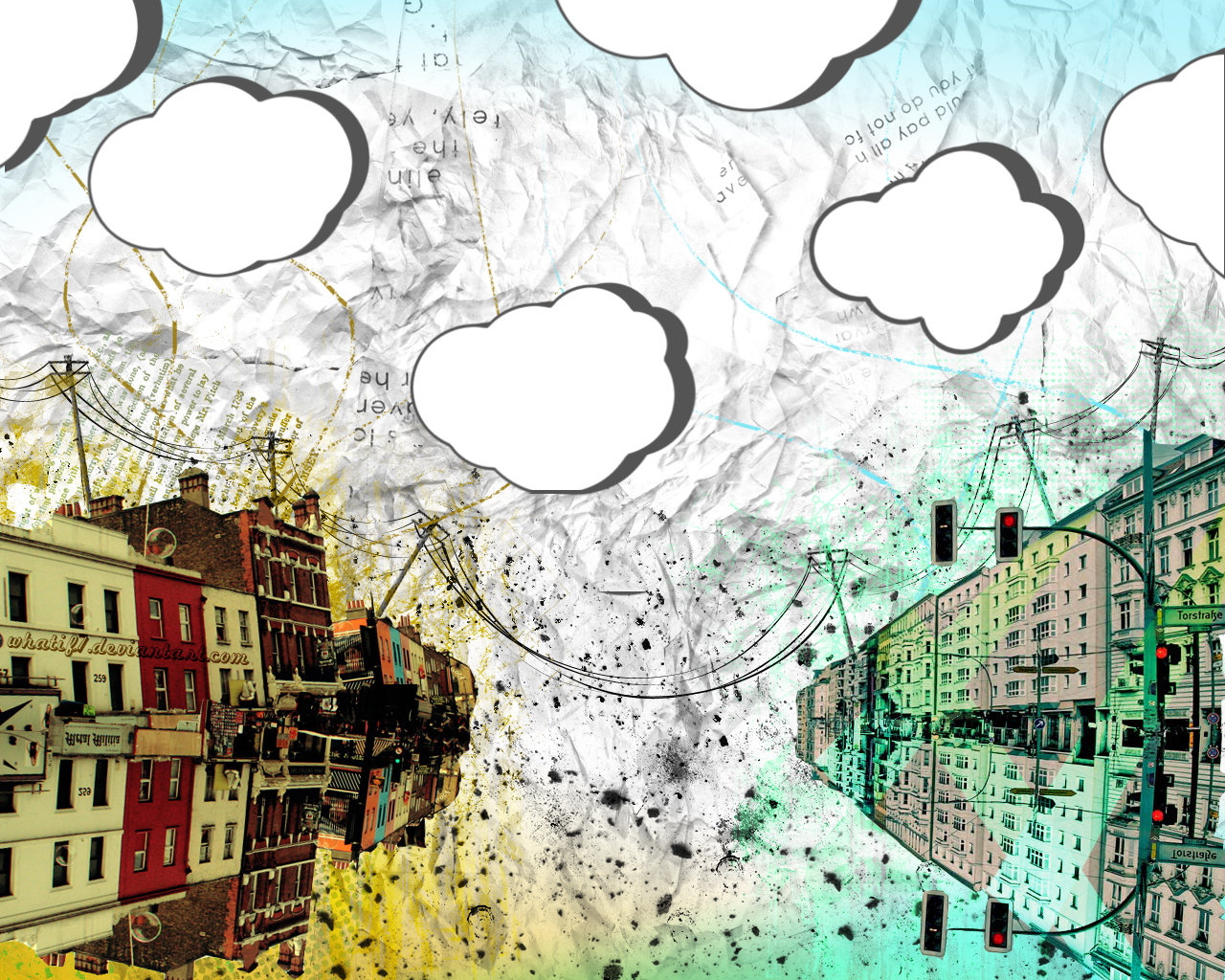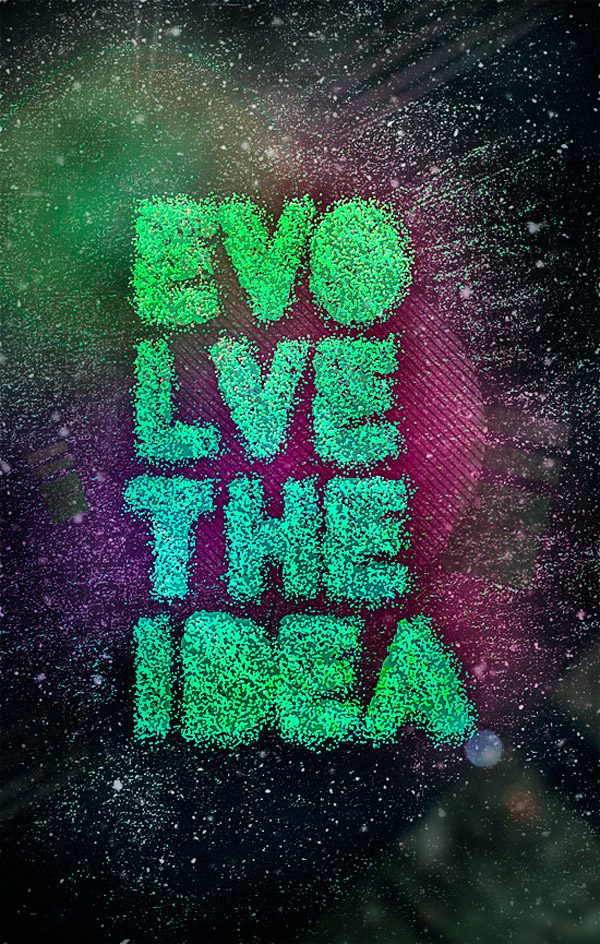Growing Network Awareness: Class, Conflict, Culture and Becoming More Trauma-Informed

Image by Kevin Dooley, used under provisions of Creative Commons Attribution License 2.0.
As mentioned in a previous post (see “A Network Leadership Institute Goes Virtual With an Appeal to the Senses”), this summer, the core convening team of Food Solutions New England was able to attend a number of different trainings to heighten the team’s awareness and facility around issues of trauma and racialized trauma. This was made possible through the generosity and understanding of the Angell Foundation, which has supported FSNE in offering the Network Leadership Institute since 2016. Last year, in light of COVID, the calls for reckoning and repair, and so much uncertainty, along with the very place-based nature of the Institute to that point, we elected not to jump into the virtual fray. Instead we took a step back, and had some deeper conversations about the future of the NLI, what we had learned over the past years, how we wanted to evolve the offering, and what new capacities we needed as a team and broader network.
Now we are poised to offer the 5th Institute over the next six months (September 2021-February 2022), anchored in 6 day-long virtual sessions, complete with many of the same components we have had in the past: (1) community and relationship building, (2) grounding in the history and present work of the Food Solutions New England Network, (3) meeting and hearing from other food system leaders and change agents in our region, (4) sharing practices to cultivate personal and collective resilience, and (5) developing deeper collaborative and networked capacity to realize justice, equity, sustainability, and democracy in our regional food system. In addition to these six sessions, we will offer a number of optional inter-session gatherings, in the early evening, with either a cooking demo, relevant movie (such as Gather and Homecoming), or special speaker.
We enter into this year’s offering knowing that the baseline for our work is connection and care. And thanks to Jerrilyn Dixson and team at Progressive Therapy, LLC out of Jackson, MS, Cultural Somatics Institute, Class Action and Quabbin Mediation, we have more enhanced sensibilities related our collective work for equity and well-being. What appears below are some of the lessons that we are bringing to this year’s Institute, and all the on-line gathering work of FSNE.
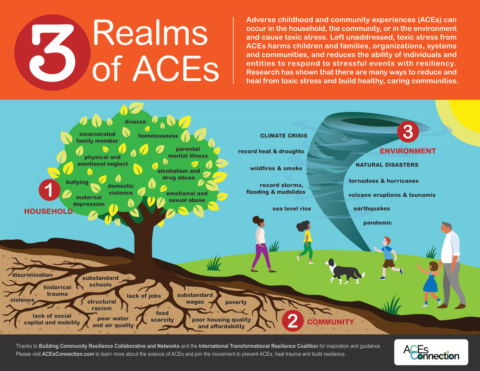
3 Realms of ACEs (sources of child trauma)
Important overall learnings and take-aways…
- Class is not just wealth; class is about a combination of resources + culture (status/power/education, etc.)
- Class can be a driver for anxiety, stress, comparison, confusion, shame, inner resistance …
- The levels of classism can mirror and connect to the levels of racism (internalized, interpersonal, institutional and structural).
- Harm-doing can take many different forms, including: racism, sexism, misgendering, aggression, unpaid labor, miscommunication, exploitation, abuse …
- At least 70% of people have had at least 1 traumatic experience; thus, trauma is the norm, not the anomaly
- 6 core principles of trauma informed care: safety, trustworthiness and transparency; peer support and mutual help; collaboration and mutuality; empowerment, voice and choice; attention to cultural, historical and gender issues
- “Trauma happens when people feel disconnected,” not seen, heard or valued.
- Connection is the energy that exists between people when they feel seen, heard and values and when they give and receive without judgment.
- Challenging behaviors are almost always about creating connection and/or safety, even if that doesn’t seem to be what’s going on to the outside observer of the behavior
- The concept of “protest behaviors” — these are things people do to get what they need to feel connected, when not getting their needs met. These show up in all different kinds of ways — be on the lookout.
- Fight/flight/freeze/fawn reactions — protest behaviors vary based on which one of these reactions you are wired for — learn to recognize and respond accordingly.
- “People who experienced trauma often do not do well with [unexpected] change.”
- “Overwhelm can look like rage.”
- Harm doers can be trying to meet basic needs, but not in ways that are not helpful.
- Inhibitors of addressing harm-doing can include fear, confusion, diffusion of responsibility and danger.
- Not intervening in harm-doing can engender vicious cycles of disengagement and disregard. Being an “active bystander” can, on the other hand, create virtuous cycles of care and connection.
- Basic needs include feeling safe and secure, and having control over what’s important to us. There is little chance of learning if these aren’t being met.
“Helping one person might not change the world, but it could change the world for one person.”
Quabbin Mediation
Practices to consider …
- Be aware of language used and how it might help people connect or lead to disconnection =on the basis of class and other aspects of their identity.
- At the beginning of a session, invite people to come up with an image that helps them to feel connection and belonging, to which they can return.
- Consider integrating “morning risers” into group sessions that invite people (optionally) to do mindful box breathing, shoulder rolls, and/or head rolls.
- Ask what participants already associate with/know about a particular topic before presenting material as a way to encourage self-reflection and openness to material.
- Create opportunities for people to tell their stories, and more about what is important to them, including their values .
- Invite people to name themselves (including on Zoom) and add identifiers (such as pronouns) that are meaningful to them.
- See and treat people as whole people, not as one-dimensional or as labels (“beware of the single story”).
- Make sure to offer assistance with technology and do not assume, or convey the assumption, that everyone is comfortable with any given technology or technique.
- Build community agreements collaboratively and by consensus.
- Ask people to name any accessibility needs, discomforts and triggers (this could be done in a survey and/or during group activity).
- Create safe and soothing space (white noise to drown out distracting noise or to let people know that what they are sharing is not carrying beyond the room, soft/relaxing music, natural imagery, calming scents)
- Be aware of your own triggers as a trainer/facilitator/coach – realize it isn’t the person, it is the action andthe interaction. Recognize, take a break. Have a code between facilitators for when one of us is triggered and needs to step out to re-regulate.
- Consider having a “3rd party” (not one of the facilitators) that a participant can talk to if there is a perception that the challenge lies with the facilitation approach.
- Use a grounding/re-connecting exercise or opportunity after a challenging moment or episode of disconnection in a group (breathing, movement, shaking, tapping, etc.).
- Use a scale of 1-10 for mood check/how people are entering or leaving space. Use a scale of 1-10 on how connected you as facilitator feel to [the group or the topic we are working on today.
- Invite people to make themselves feel comfortable as participants (bring fidget toys, food, water, something that makes them feel at home).
- Pay attention to the choices of colors, images, etc, in the slides that you use.
- Create some predictability and transparency by sharing goals and the agenda of a session in advance, along with timeframes, roles, expectations and any supplies/materials needed.
- Stay online 15-30 minutes after a session for anyone who would like to talk more.
- Agree on a hand gesture signal that allows people to take space as needed (i.e. when they want to leave the room to use restroom or take an unscheduled break).
- Consider structuring in identity-based caucuses. Give them topics and structure. Use when needed or desired.
- Use entry passwords, and make sure everyone in the group can get easy access to them, for virtual settings, ensuring that all feel it is literally a safe space
- Apprise guest speakers of group agreements, before they show up and brief them on the vibe/pet peeves. Let the group know this is being done to demonstrate you value the trust-based environment you are trying to create.
- Have mental-emotional-spiritual health and support resources information available.
- Should things get volatile with someone who is triggered, reflect back (name the behavior), create space for them to be heard, do not take it personally and check your privilege …
- Be ready to recognize if an individual is not ready for the group or program (and vice versa) after employing all of these practices. No one person is bigger than the mission/goal. Have procedures in place for non-compliance that maintain the dignity of all.
- Have a “consent/agreement” about actions that will be taken should challenges arise, including the possibility of determining the program is not the right fit for participant. “In the event of a conflict or a feeling of harm being done, here are [2-3] ways to start the process of addressing or resolving the issue. If, even after these efforts, the challenges remain, we may collectively decide that this program is not a good fit for your needs….”

Photo by Denise Cross, used under provisions of Creative Commons Attribution License 2.0.
“Non-violence is the constant awareness of the dignity and humanity of oneself and others. Non-violence is a courageous acceptance of active love and goodwill as the instrument with which to overcome evil and transform both oneself and others.”
Wally Nelson, African American civil rights and peace activist (1909-2002)
Content and resources to consider integrating…
- My Grandmothers’ Hands by Resmaa Menakem
- Cultural Somatics Institute on-line workshops
- Generative Somatics website
- 3 Realms of ACEs (see image near start of post)
- Resource list from Class Action website
- Resources on class and classism on NCCJ website
- Poor People’s Campaign website
- Resource list from Quabbin Mediation
- Crisis Contemplation: Healing the Wounded Village by Barbara A. Holmes
- Healing Collective Trauma by Thomas Hübl
- Resources on Dr. Brene Brown’s website

Leave a comment“True belonging is the spiritual practice of believing in and belonging to yourself so deeply that you can share your most authentic self with the world and find sacredness in both being a part of something and standing alone in the wilderness. True belonging doesn’t require you to change who you are; it requires you to be who you are.”
Dr. Brené Brown
